Sir William Strang G.C.M.G., K.C.B., M.B.E. (1893-1978) with Sir Winston Leonard Spencer Churchill (1874-1965) letter. The Most Honourable Order of the Bath Knight Grand Cross (Civil) GCB, awarded to Sir William Strang comprising: silver gilt neck/collar badge and star, in original fitted case with ribbons, by Garrard & Co Ltd, with instruction card; together with a photograph of Strang in full regalia, signed Bassano; and a letter on 10 Downing Street headed paper, hand signed by Winston S. Churchill, dated May 13, 1953, reading: "My dear Strang, I hope you will allow me to submit your name to The Queen in the forthcoming Coronation Hourours List for appointment as a Knight Grand Cross of the Order of the Bath in recognition of your long and distinguished services, Yours sincerely". After the First World War, in which he fought as an Officer in the Worcestershire Regiment, in 1919, he joined the Diplomatic Service and served at the British embassy in Belgrade from 1919 to 1922, at the Foreign Office from 1922 to 1930 and at the embassy in Moscow from 1930 to 1933. During his time in Moscow, he played an important role in the Metro-Vickers Engineers trial, in which six British engineers were accused of spying. He returned to the Foreign Office in 1933 and held office as head of the League of Nations section until 1937 and of the Central Department from 1937 to 1939. During the 1930s he was an adviser to the government at the major international meetings, and met Mussolini, Hitler and Stalin. He was a tacit opponent of appeasement, but always stayed loyal to the government. Strang was present at the major conferences between the Allied leaders during the Second World War. In 1943 Strang was appointed the British representative on the European Advisory Commission, with the rank of ambassador. The commission was established by the Allies to study the possible post-war political problems in Europe and make recommendation but was dissolved at the Potsdam Conference. In June 1945, Strang became political adviser to the Commander-in-Chief of British forces in Germany, Bernard Montgomery. Strang again returned to the Foreign Office in 1947 and served as Permanent Under-Secretary of State for the German section from 1947 to 1949 and as Permanent Under-Secretary of State for Foreign Affairs from 1949 to 1953. The six years Strang served as Permanent Under-Secretary of State saw the gradual recovery of Europe through the Marshall Plan, the establishment of the Western European Union and NATO and the breaking of the Berlin blockade. He retired from the Foreign Office in December 1953 due to ill health, following an incident where he fainted during Queen Elizabeth II's coronation ceremony at Westminster Abbey. While serving as an army captain, Strang was appointed a Member of the Order of the British Empire (MBE) in 1918. He was made a Companion of the Order of St Michael and St George (CMG) in 1932, a Companion of the Order of the Bath (CB) in 1939, a KCMG in 1943, a GCMG in 1950 and a KCB in 1953. In 1954, he was raised to the peerage as Baron Strang, of Stonesfield in the County of Oxford. He later served as a Deputy Speaker and Deputy Chairman of Committees in the House of Lords and as Convenor of the Crossbench Peers.
Sir William Strang G.C.M.G., K.C.B., M.B.E. (1893-1978) with Sir Winston Leonard Spencer Churchill (1874-1965) letter. The Most Honourable Order of the Bath Knight Grand Cross (Civil) GCB, awarded to Sir William Strang comprising: silver gilt neck/collar badge and star, in original fitted case with ribbons, by Garrard & Co Ltd, with instruction card; together with a photograph of Strang in full regalia, signed Bassano; and a letter on 10 Downing Street headed paper, hand signed by Winston S. Churchill, dated May 13, 1953, reading: "My dear Strang, I hope you will allow me to submit your name to The Queen in the forthcoming Coronation Hourours List for appointment as a Knight Grand Cross of the Order of the Bath in recognition of your long and distinguished services, Yours sincerely". After the First World War, in which he fought as an Officer in the Worcestershire Regiment, in 1919, he joined the Diplomatic Service and served at the British embassy in Belgrade from 1919 to 1922, at the Foreign Office from 1922 to 1930 and at the embassy in Moscow from 1930 to 1933. During his time in Moscow, he played an important role in the Metro-Vickers Engineers trial, in which six British engineers were accused of spying. He returned to the Foreign Office in 1933 and held office as head of the League of Nations section until 1937 and of the Central Department from 1937 to 1939. During the 1930s he was an adviser to the government at the major international meetings, and met Mussolini, Hitler and Stalin. He was a tacit opponent of appeasement, but always stayed loyal to the government. Strang was present at the major conferences between the Allied leaders during the Second World War. In 1943 Strang was appointed the British representative on the European Advisory Commission, with the rank of ambassador. The commission was established by the Allies to study the possible post-war political problems in Europe and make recommendation but was dissolved at the Potsdam Conference. In June 1945, Strang became political adviser to the Commander-in-Chief of British forces in Germany, Bernard Montgomery. Strang again returned to the Foreign Office in 1947 and served as Permanent Under-Secretary of State for the German section from 1947 to 1949 and as Permanent Under-Secretary of State for Foreign Affairs from 1949 to 1953. The six years Strang served as Permanent Under-Secretary of State saw the gradual recovery of Europe through the Marshall Plan, the establishment of the Western European Union and NATO and the breaking of the Berlin blockade. He retired from the Foreign Office in December 1953 due to ill health, following an incident where he fainted during Queen Elizabeth II's coronation ceremony at Westminster Abbey. While serving as an army captain, Strang was appointed a Member of the Order of the British Empire (MBE) in 1918. He was made a Companion of the Order of St Michael and St George (CMG) in 1932, a Companion of the Order of the Bath (CB) in 1939, a KCMG in 1943, a GCMG in 1950 and a KCB in 1953. In 1954, he was raised to the peerage as Baron Strang, of Stonesfield in the County of Oxford. He later served as a Deputy Speaker and Deputy Chairman of Committees in the House of Lords and as Convenor of the Crossbench Peers.
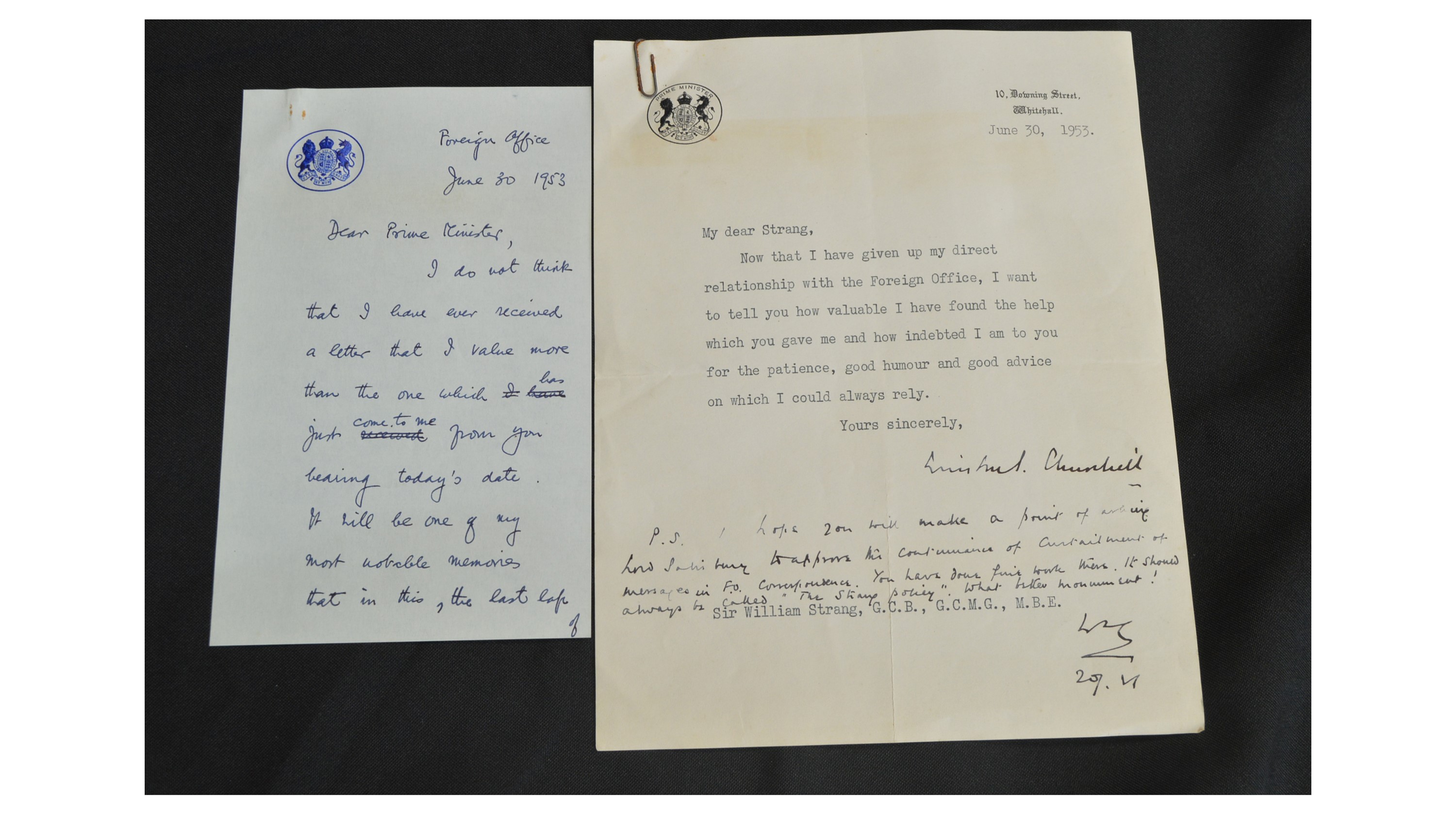
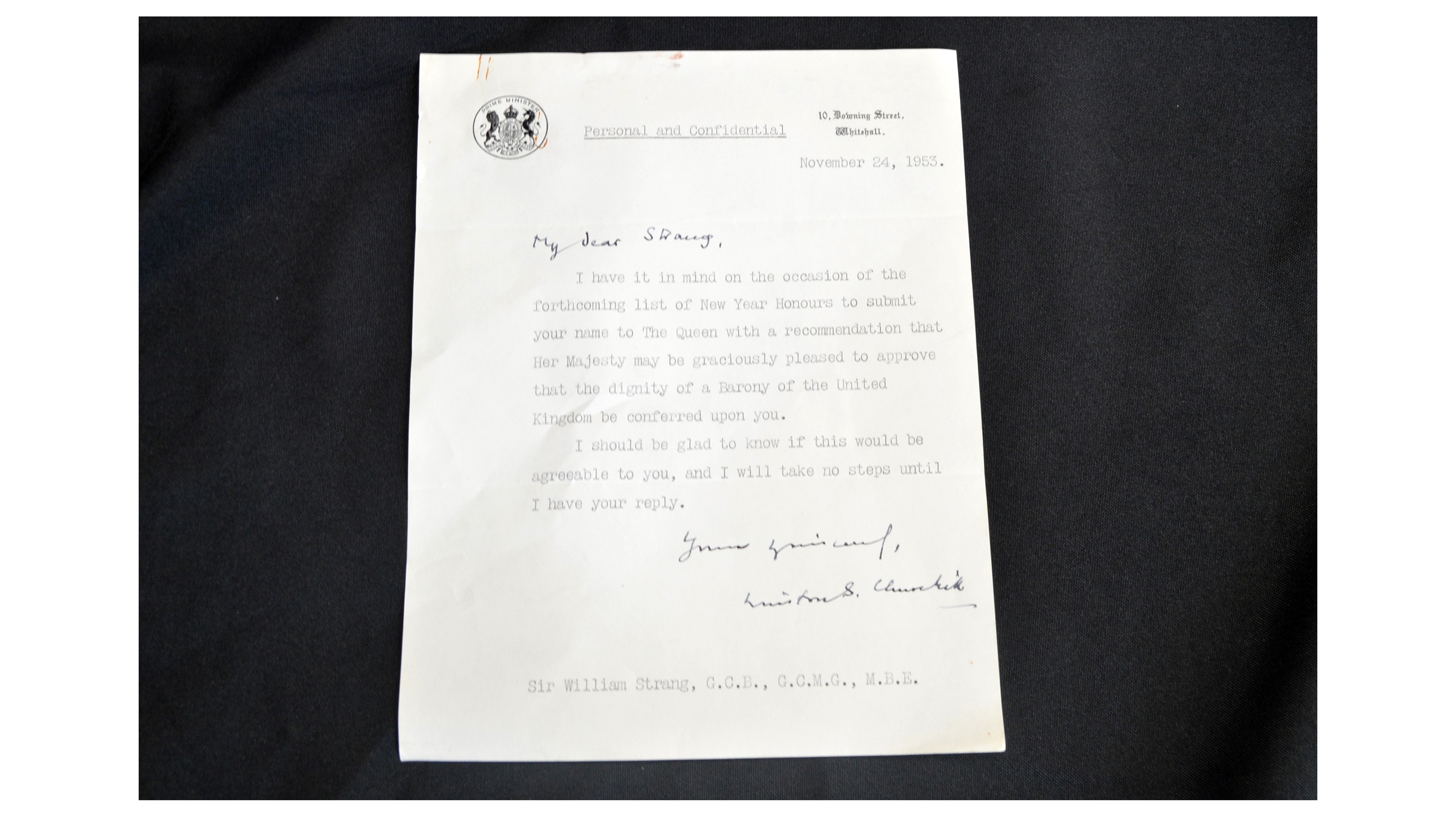
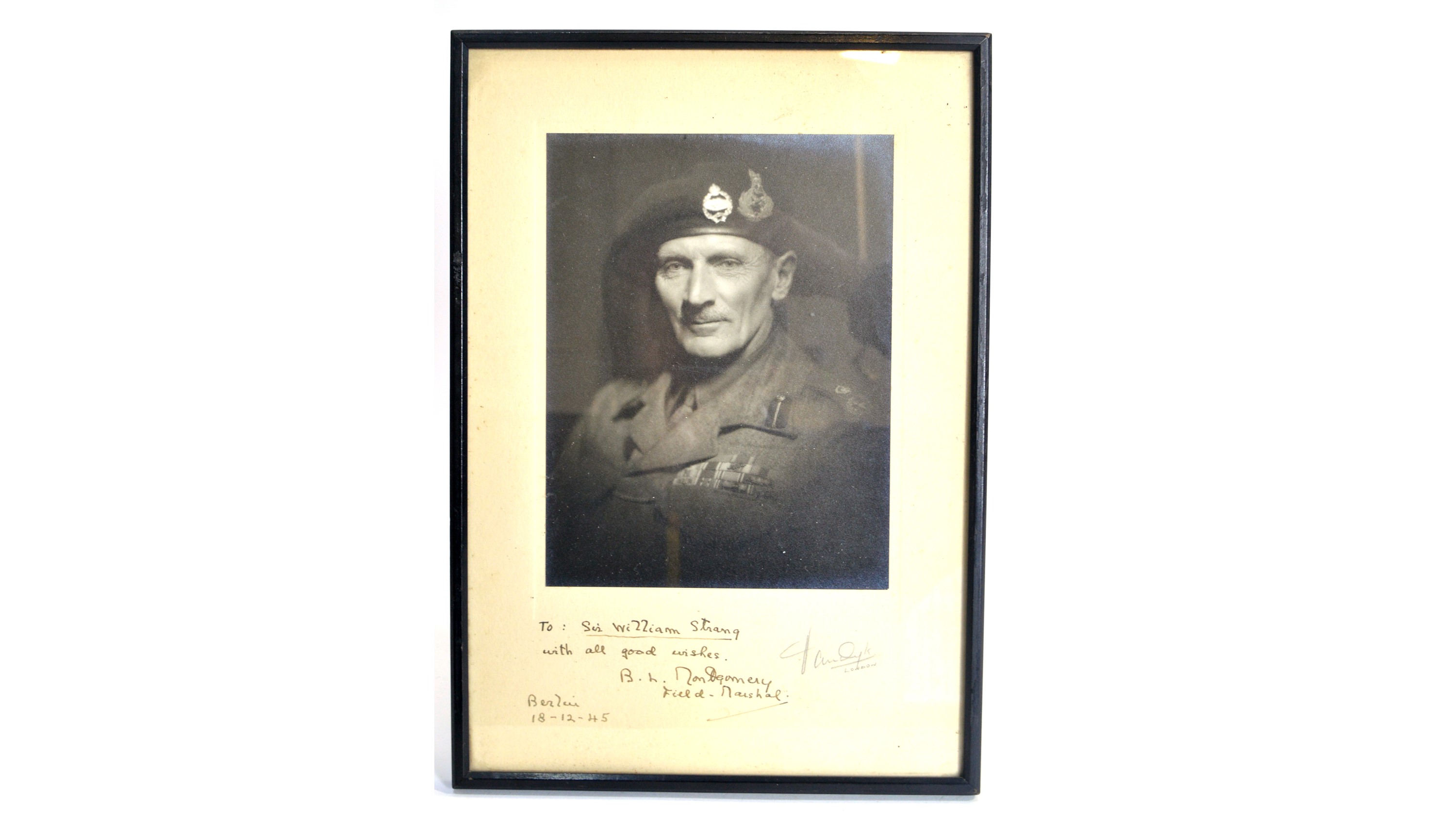
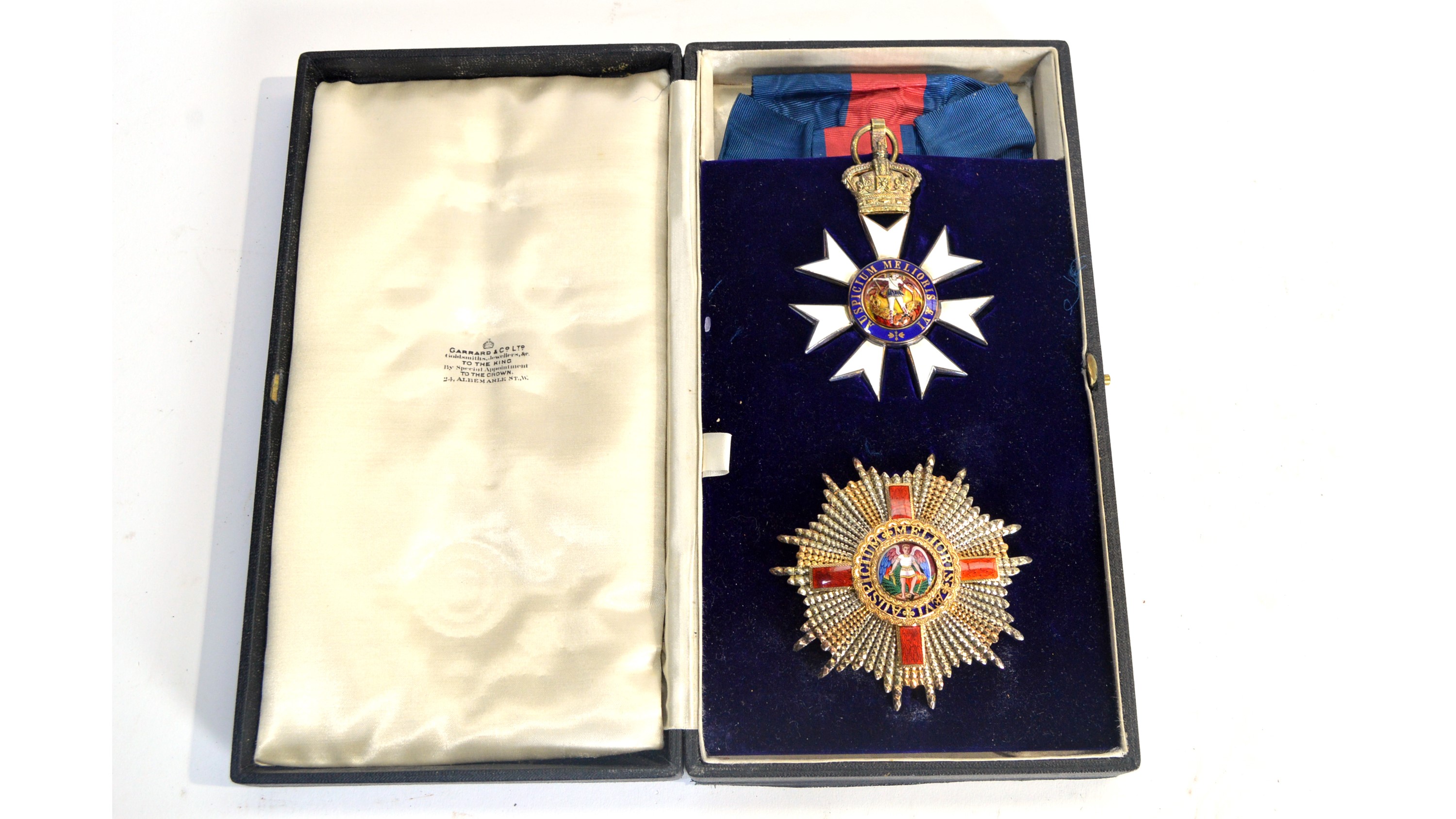
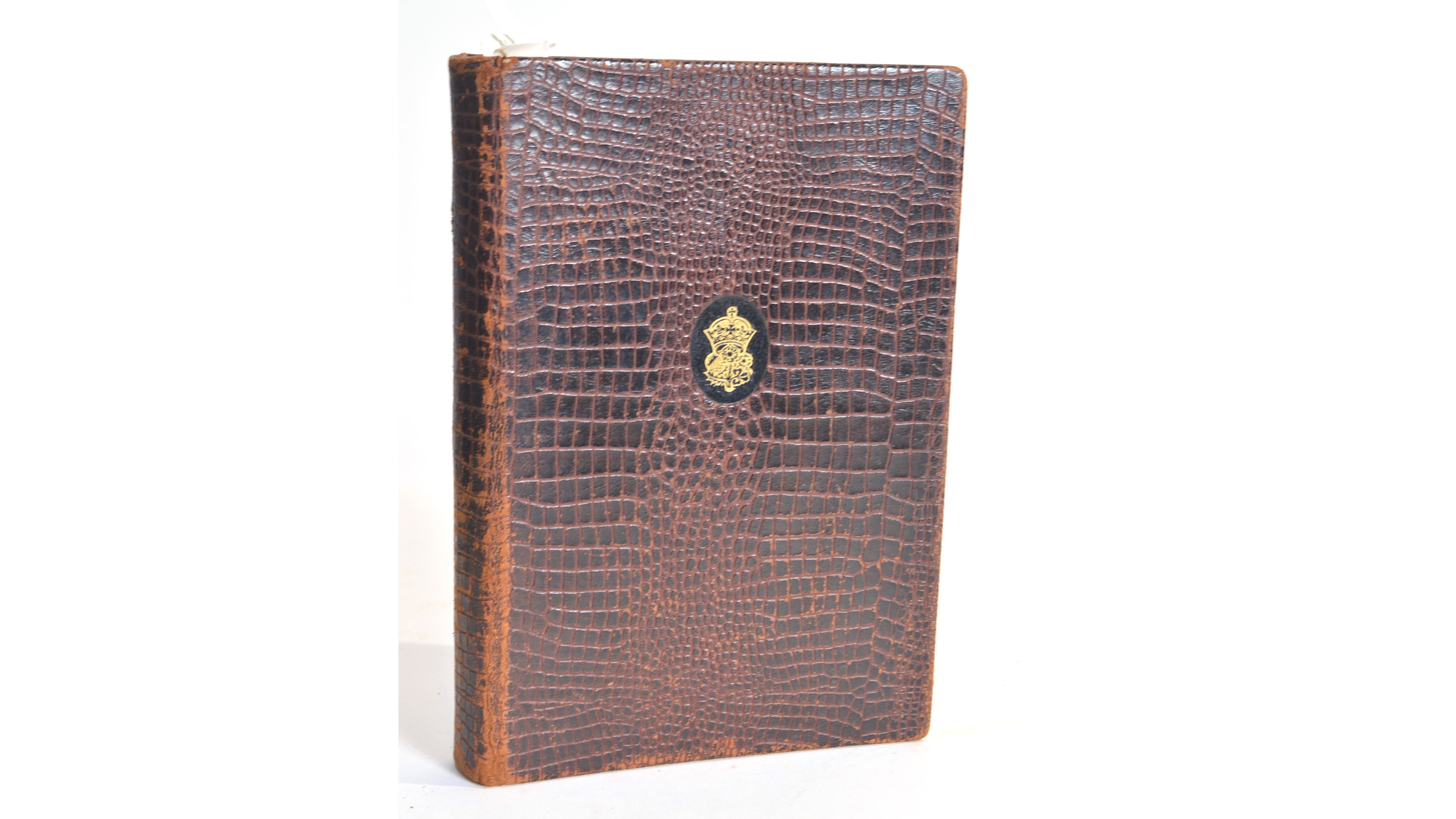
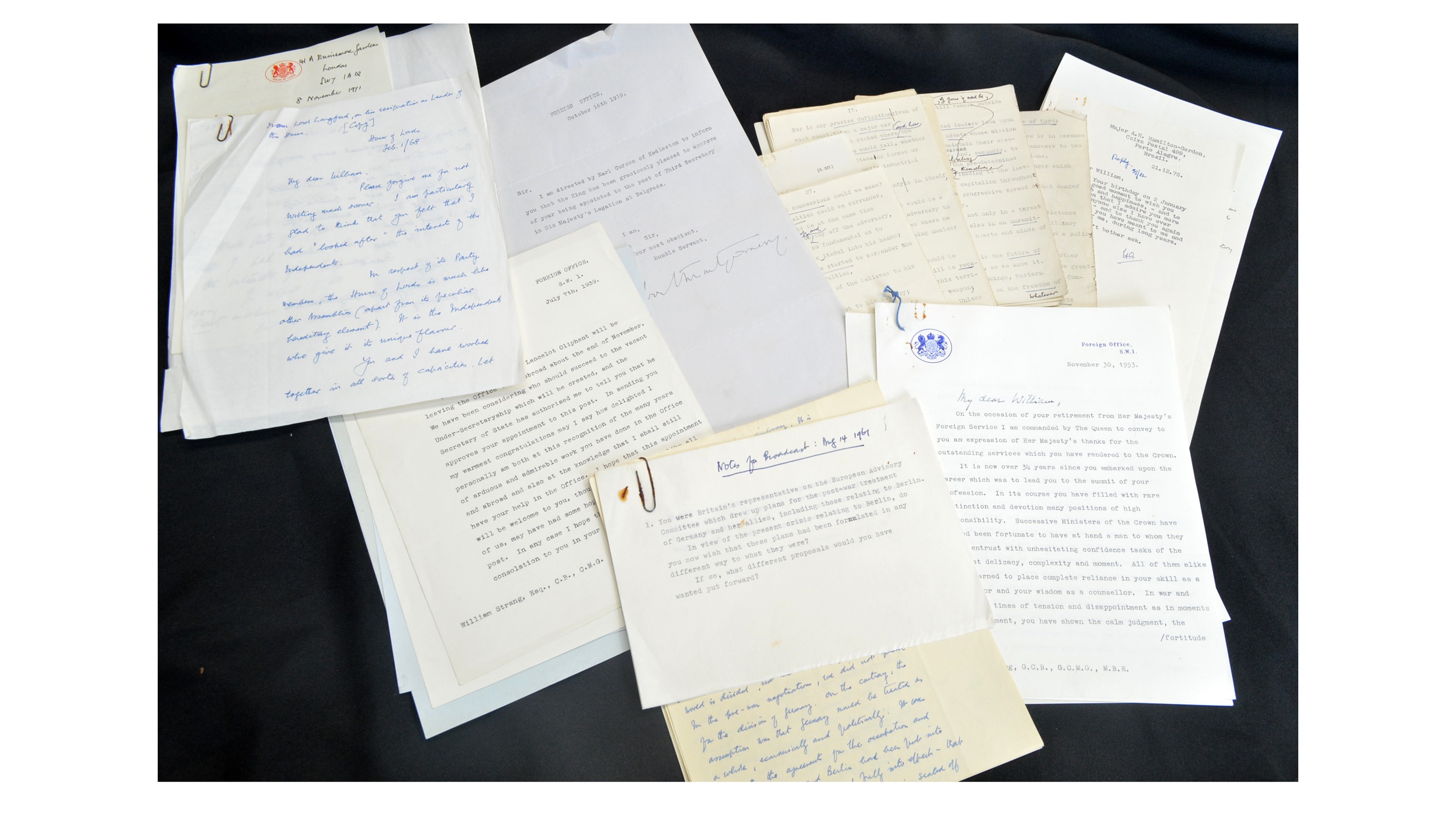




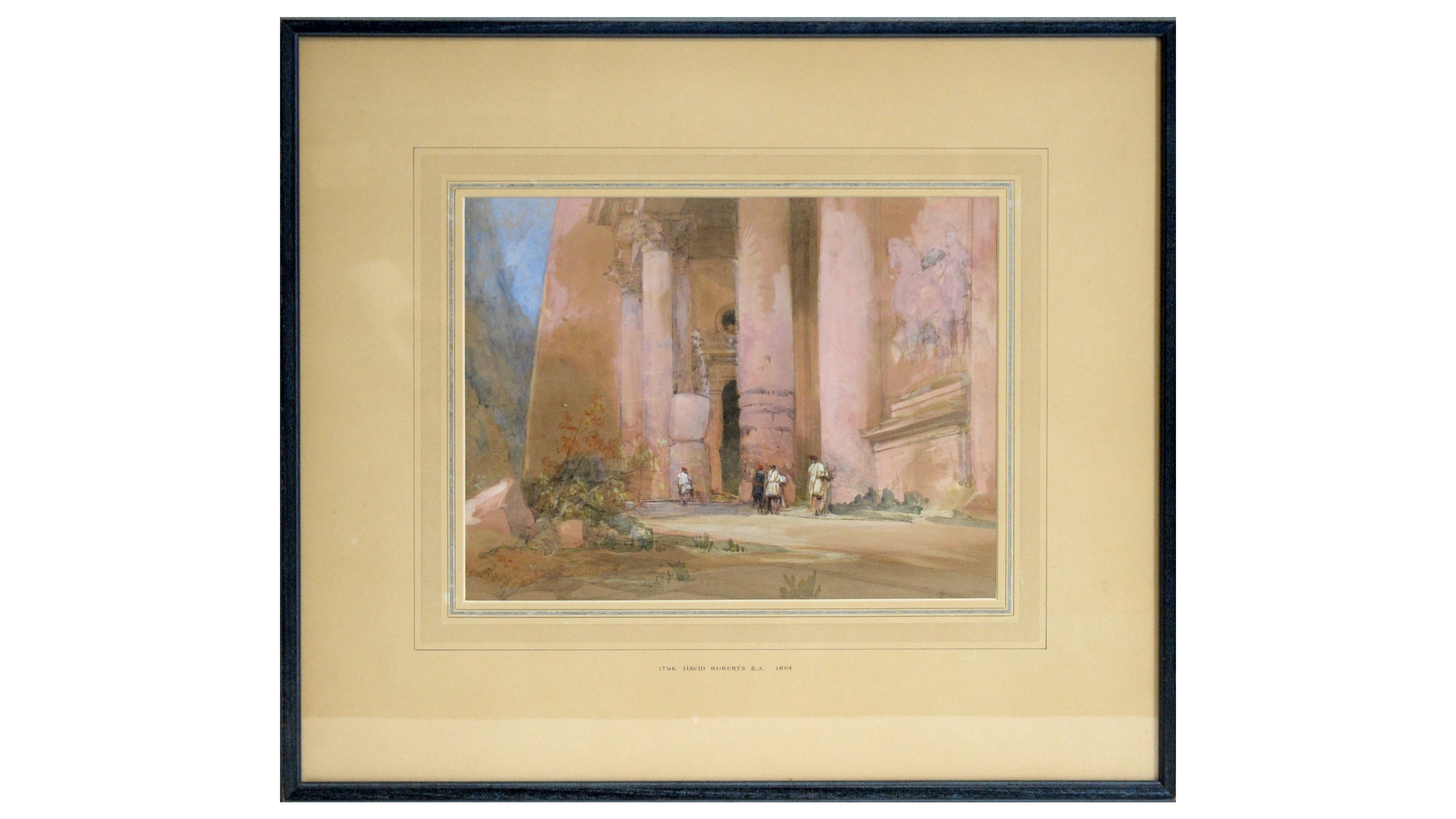
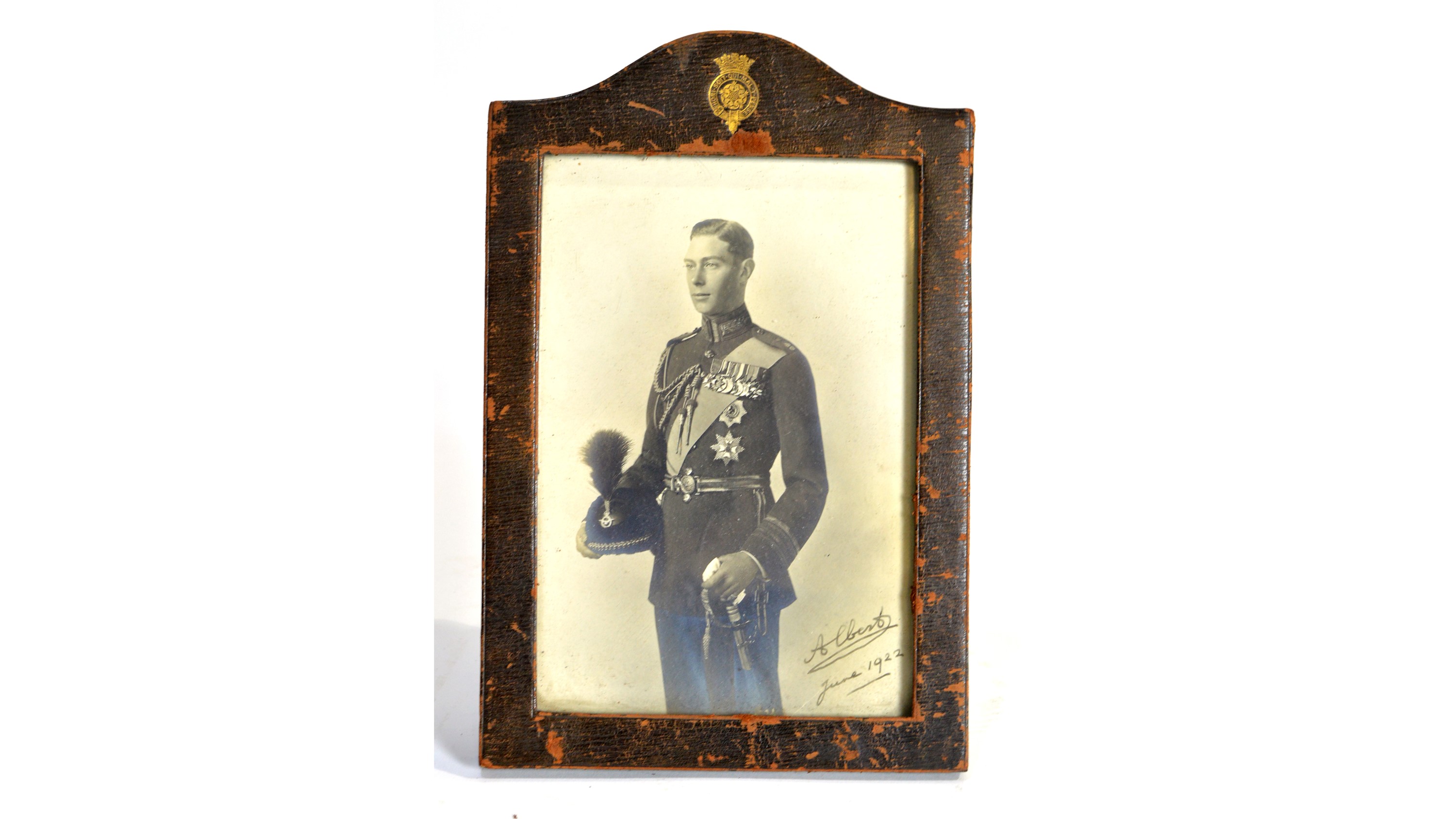

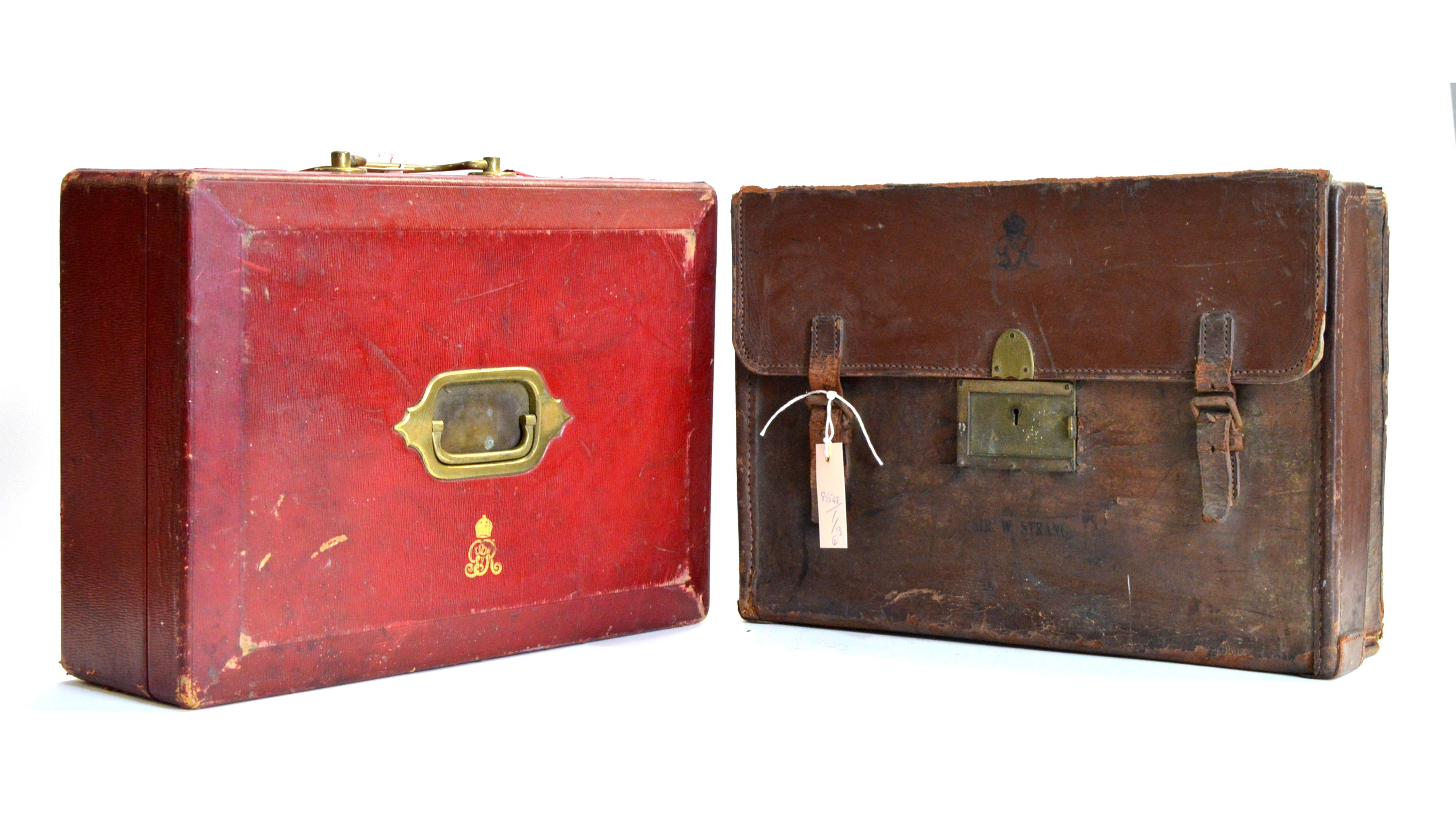

Try LotSearch and its premium features for 7 days - without any costs!
Be notified automatically about new items in upcoming auctions.
Create an alert